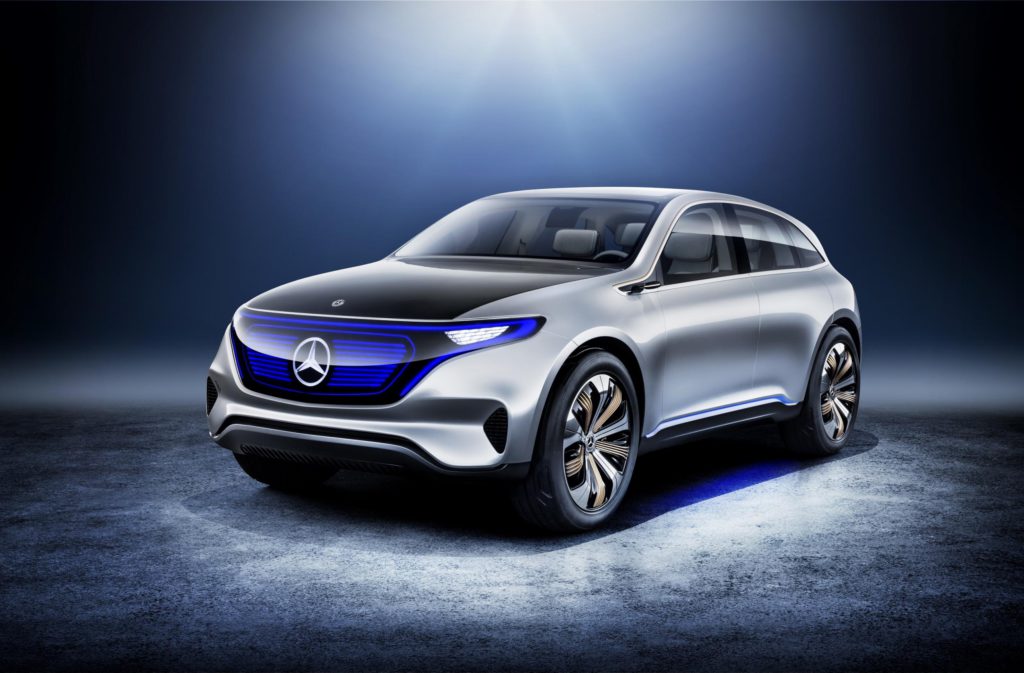Revolt over move to EV production as Daimler looks to build future
30 June 2017

30 June 2017
Daimler is facing a rebellion amongst its workers at the company’s Mercedes-Benz engine plant in Stuttgart over plans to add electric vehicle (EV) battery facilities in an extension of its facility.
To protest conditions offered by the German manufacturer as it negotiates the addition of the facilities, staff are to stop working overtime during July 2017. Daimler believes this will slow engine output, forcing it to cancel shifts for assembling its Mercedes E-Class sedan model.
According to reports, there are growing tensions between workers who build combustion engines and managers seeking to position the company for a battery-powered future. Daimler is just one manufacturer looking to rapidly expand its EV offering, which will require new methods of working as well as new technologies for assembling generators over engines, which will require new staff training. Some who have been working in assembly for years may feel the new technology will push them out of their jobs in favour of younger workers who can be trained straight away for EV building. Their experience may no longer be such an asset.
The company is expected to launch its first vehicle, the EQ C, in 2019, with reports suggesting that this will be a luxury SUV model. This is one of 10 planned EVs to be developed by Mercedes, in a €10 billion program launched as part of its CASE strategy. In a statement presented at the Mondial de l’Automobile 2016 event, the company said: ′″¦by 2022, Mercedes-Benz Cars aims to have over ten all-electric vehicles in its portfolio. To meet the growing demand for high-quality, high-voltage batteries, the company is investing a total of one billion euros in the expansion of its global battery production network, which also includes a new gigafactory in Kamenz, Saxony.
Daimler may not be the only company facing a worker revolt, with a number of manufacturers ramping up their development of EVs as they look to meet stricter emissions guidelines and work with strict quotas being implemented by the Chinese government. This has already seen BMW announce it will be reducing the number of options and engine variants it offers in order to spend more on research and development. Car manufacturers need to balance their existing workforces while also training and bringing on new talent to ensure they can make the most of new technology and new manufacturing techniques.
Daimler and labour representatives have been in talks since May on the company’s plan to start making batteries and other electric-car components at the 110-year-old Untertuerkheim site near the company’s headquarters in Stuttgart. The works council is balking at the manufacturer’s proposed commitments on pay and future investments. Worker representatives have significant influence at German companies and are involved in shaping strategy and investments.
The company has suggested that if it cannot reach an agreement, it will look to invest in another site, which means the Stuttgart facility risks being left behind as Daimler’s EV strategy grows and demand for traditional propulsion drops.
Meanwhile, a new study by Bloomberg Intelligence reports that Chinese companies are at work on plans to have a more than 120GWh capacity a year by 2021. Demand for lithium-ion batteries is forecasted to radically increase in the next five years as EV sales grow in markets including China. The country is working to build an EV battery dominance, with a consortium also planning to buy Nissan’s manufacturing business.
This is a big increase on Tesla’s planned facility in Nevada, which is scheduled to have capacity for up to 35GWh battery production annually by 2018. CEO Elon Musk has suggested that the carmaker would be looking to open further facilities globally, with one in China planned.
With China’s expertise in electronics production, it remains to be seen whether the facility will prove a competitor to those from Tesla and Daimler, or will end up supplying the manufacturers, as well as others, moving traditional parts supply further inside the Asian market and affecting companies such as Schaeffler and Bosch, which offer extensive numbers of components to manufacturers.
Photograph courtesy of Daimler
The insight behind the news
Never miss another story – sign up to receive your complimentary Autovista Group Daily Brief. This timely and incisive daily briefing covering automotive news and insights on the issues affecting your business is delivered direct to your inbox.